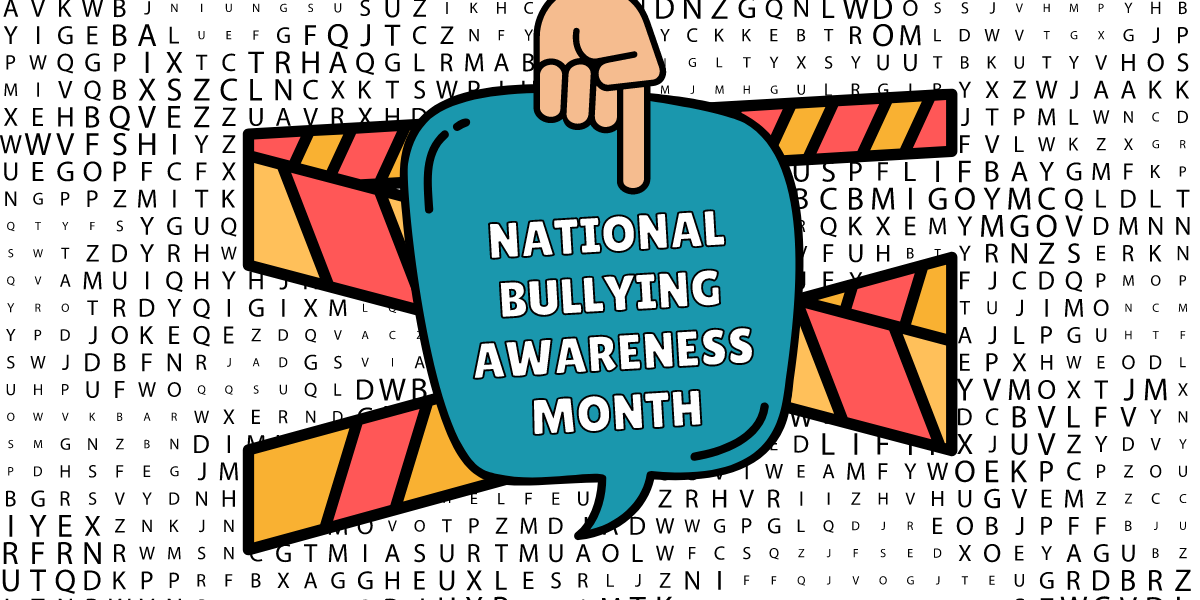


Published on September 30, 2024
In 2006, October was declared as National Bullying Prevention Month.
What is Bullying?
Bullying is when someone hurts, threatens, or makes fun of others on purpose, over and over again. It can happen in person, online, or through text messages. Bullying can make people feel sad, scared, and alone.
How to Prevent Bullying:
Be kind to everyone, even those who are different from you.
If you see someone being bullied, don’t join in—help them instead.
Tell a trusted adult if you see bullying or if you’re being bullied.
Use your words to lift others up, not to tear them down.
What You Can Do if You’re Being Bullied:
Stay calm and walk away.
Talk to a teacher, parent, school counselor, or other trusted adult.
Don’t keep it to yourself—there are people who care and want to help.
What is the difference between being an Upstander vs. being a Bystander?
An upstander is someone who sees bullying and does something to stop it. Be brave—stand up for others, tell an adult, or support the person being bullied. Don’t be a bystander who watches in silence.
As a parent, if you discover that your child is being bullied, it’s important to act with care, empathy, and clear communication. Here are steps parents can take if they’re made aware of their child being bullied:
Listen and Offer Support
Create a Safe Space: Encourage your child to share their feelings. Be calm and supportive, letting them know it’s not their fault.
Validate Their Emotions: Acknowledge their feelings and assure them that it’s okay to feel hurt, scared, or upset.
Gather Information
Ask Specific Questions: Gently ask for details about the bullying—who, what, when, and where. Understanding the situation fully will help you find the best solution.
Avoid Overreacting: Stay calm and don’t take immediate drastic actions that might make your child feel uncomfortable, like confronting the bully yourself.
Teach Problem-Solving Skills
Role-Playing Responses: Help your child practice ways to respond to bullying. This can build their confidence. Teach them to stay calm, walk away, or use assertive but non-aggressive language.
Help Them Build Friendships: Encourage your child to spend time with positive friends who support them. Bullies are less likely to target children who are part of a strong social group.
Communicate with the School
Set Up a Meeting: Contact your child’s teacher, counselor, or principal to discuss the bullying. Be specific about what’s happened and ask about the school’s anti-bullying policies.
Collaborate on Solutions: Work with school officials to develop a plan to ensure your child’s safety. This might involve monitoring areas where bullying occurs or setting up a buddy system.
Monitor for Emotional Impact
Watch for Signs of Stress: Bullying can lead to anxiety, depression, or other emotional challenges. Look for changes in your child’s behavior, sleeping habits, or appetite.
Seek Professional Help: If your child is struggling emotionally, consider speaking with a school counselor or a therapist. They can offer strategies for coping with the emotional effects of bullying.
Encourage Positive Activies
Boost Self-Esteem: Encourage your child to engage in activities they enjoy and are good at, whether it’s sports, art, or hobbies. Positive experiences can help restore confidence.
Teach Kindness: Reinforce the importance of kindness and empathy, even when faced with difficult situations. This can help your child process their feelings and feel empowered.
Stay Involved
Keep the Conversation Going: Regularly check in with your child to see how things are going at school and with friends. This helps you stay informed and shows your child that you’re there to support them.
Model Positive Behavior: Show your child how to handle conflicts and difficult emotions through your own actions.
By staying involved, open, and proactive, parents can help their children feel supported and find ways to address bullying effectively. If a parent suspects that their child is being bullied, they should contact the building principal or school counselor immediately to report the incident.
Parent Resources:
Warwick School District’s Commitment to Safety and Bully-free Schools
The district is committed to providing a safe, positive learning environment for district students. The district recognizes that bullying creates an atmosphere of fear and intimidation, detracts from the safe environment necessary for student learning, and may lead to more serious violence. Therefore, the district prohibits bullying.
Consequences for Bullying
A student who violates Board Policy 249: Bullying and Cyberbullying, shall be subject to appropriate disciplinary action consistent with the Code of Student Conduct, which may include:
Counseling within the school.
Parental conference.
Loss of school privileges.
Transfer to another school building, classroom, or school bus.
Exclusion from school-sponsored activities.
Detention.
Suspension.
Expulsion.
Counseling/Therapy outside of school.
Referral to law enforcement officials.
Together, We Can Create a Kinder School Environment
Bullying may be a tough challenge, but with everyone's commitment—students, teachers, parents, and staff—we can make a difference. Every act of kindness, every effort to stand up against bullying, helps create a safer, more supportive space for everyone. By working together, we are building a school community where respect and empathy lead the way, and where every student feels valued and heard.
Let's keep moving forward, one step at a time, toward a future where bullying has no place in our schools!